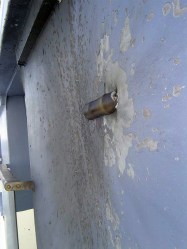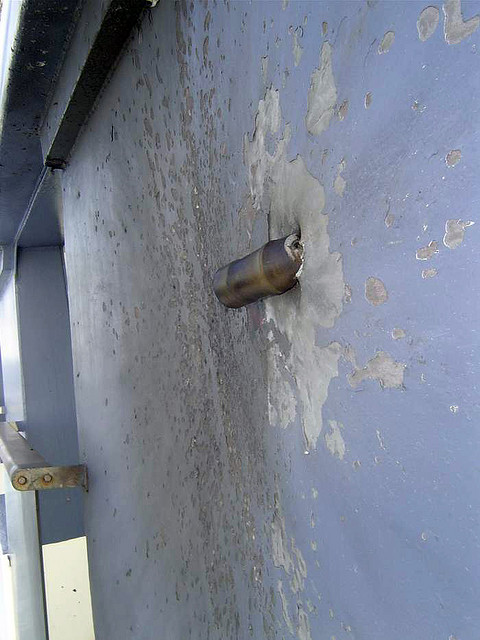The rate of piracy off the coast of Somalia in East Africa has dropped significantly over the past few years. The International Chamber of Commerce maintains a live map of attacks; the plurality at this point are off the coast of India. Earlier this month, a Somali pirate kingpin announced his retirement using that traditional pirate tool: the press conference.

ooochaA rocket-propelled grenade fired by Somali pirates is buried in the side of a cruise ship.
At the same time, attacks along the western coast of Africa have increased. One key target? Oil. From Quartz:
The East Africa attacks were also sometimes on oil tankers, but with the goal of squeezing out large ransoms from the cargo-owners. The difference now is that the West Africa attacks are after the oil itself. On Jan. 21, for example, a tanker called ITRI was captured by pirates near Cote d’Ivoire; it has not been heard from since. Most of the oil attacks are off the coast of Nigeria, where pirates ply the Niger Delta.
The ICC’s tool provides more detail on that attack (which it places on the 16th).
Pirates boarded and hijacked the tanker and sailed her to an unknown location. They stole her cargo. The 16 crew members and tanker were released unharmed on the 22.01.2013. The vessel proceeded to Lagos port.
That the crew of the tanker was released suggests that personal ransoms aren’t the intent; that the vessel ended up in Lagos, Nigeria, suggests that the thieves intend to actually process the oil. As we noted last year, some $7 billion worth of oil is stolen in Nigeria each year. The country is home to black-market refineries of the sort that could handle the tanker’s cargo; the country’s government recently considered bombing them.
This oil piracy is driven by the market. Lots of oil leaves Nigeria (often bound for U.S. refineries), and it and other countries along Africa’s west coast don’t have robust safety systems. When on-the-books oil companies can make $62 million a day in profits, it’s no surprise that lightly guarded oil tankers within a short distance of illegal refining facilities should prove a tempting target.




